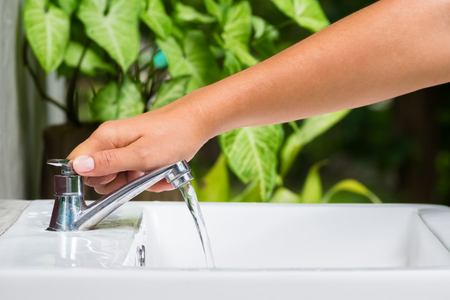
With climate change and global warming hot topics in society today, you might be wondering if there are some ways you can reduce water use to help the environment. Reducing water use also helps you save on your monthly utility bills, which means you have more money to put elsewhere in your budget.
Here are some easy strategies you can implement to help reduce your water use.
Maintain and Repair All Leaks
Sometimes your home can have a small, less-than-obvious leak. Large leaks are easier to identify, often accompanied by a jump in your water bill. Checking for leaks regularly can help reduce your water use. If you notice a leak, shut off the water, repair it, or call a plumber right away.
Have previous leaks checked to make sure they are not leaking again. If you have pipes or other parts in disrepair, we recommend replacing them immediately to avoid any major damage.
Use the Dishwasher
This one might seem surprising. However, running the dishwasher when it’s full saves more money than washing all dishes by hand. The key is making sure the dishwasher is full!
If you don’t have a dishwasher, fill the sink or a bowl with water rather than letting the tap run for the entire duration that you do dishes.
Take Short Showers
Short showers use less water than taking a bath. Try to take the shortest shower possible. You can also turn the water off when you are shaving or conditioning your hair to use less water.
If you want to take baths, try to limit them to a few times per month compared to everyday.
Don’t Do Laundry Everyday
The washing machine is one of the appliances in your home that uses the most water. Only do laundry when you have a full load or when things are very dirty. If you live in shared housing with roommates, ask them if they want to share a load with you when you don’t have enough to fill the machine.
Washing your clothes less frequently also means less wear and tear so your favorite items will last longer. Most clothes also do not need to be washed in hot water unless they are very soiled.
Consider using cold water unless you’re washing towels or bedding. You can also choose to alternate using hot and cold water rather than using hot with every wash.
Insulate Your Water Pipes
Water pipes that are not insulted struggle to keep water warm during colder months. This means you will have to let the water run longer before it is warm, creating water waste. When you insulate your pipes, the water loses less heat.
Getting your pipes insulated might seem expensive but you will see a difference in your utility bill by letting less water run.
Water Plants in the Morning
If you have an outdoor garden that needs watering, don’t water it during the heat of the day. Water it in the morning to reduce evaporation from the heat and wind. This will mean you can use less water since all the water coming out of the hose or sprinklers will be absorbed better by the soil and plants.
You should also group plants together according to their water needs so that you don’t have to water the whole garden when it’s not necessary.
Never Let Water Run
Little habits can make a large impact. You can turn off sink water during your grooming routine to help save water. Consider turning it off when you are brushing your teeth, shaving, or putting on makeup. You can even hang reminders on the bathroom mirror to make sure you are turning the water off.
Install Flow Restrictors
There are special shower and faucet heads that restrict the flow of water to only the amount you need to adequately bathe. This allows water not to be wasted while you are in the shower or using the sink. You can consider installing these in the primary bathroom or all bathrooms, depending on your budget.
Keep Water in the Fridge
You can fill a pitcher with water and put it in the fridge for cold water rather than making the faucet run to turn cold each time you would like a cold beverage. You can also fill ice trays with water.
Spread Awareness
Last, if water consumption is something that you’re passionate about, you can spread awareness to friends and the community by having discussions. Encouraging other people to be aware of how much water they use and how they can cut back can make more of a difference than you think.
With a few simple steps, we can all greatly reduce our water usage!
